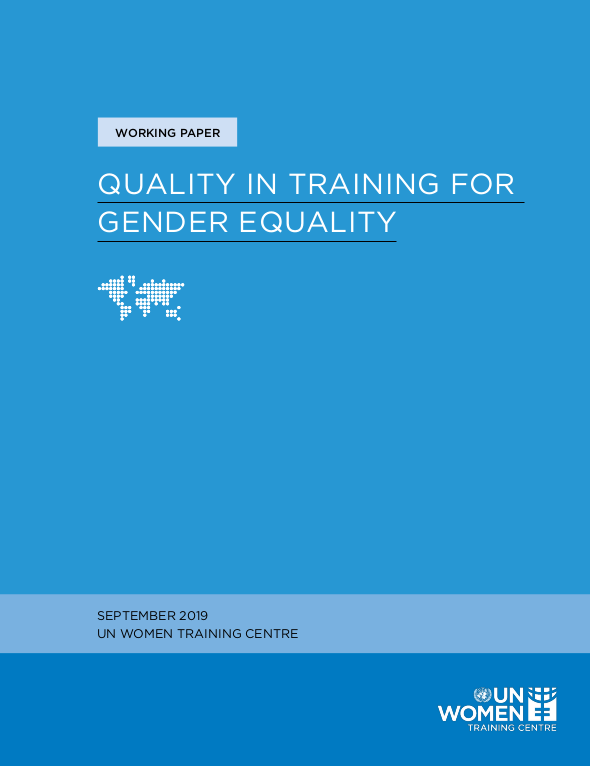Quality in Training for Gender Equality
Lucy Ferguson
2019
This paper explores how feminist pedagogical principles – in line with the UN Women Training Centre’s commitment to ‘participatory, non-hierarchical, and power-sharing learning’ – can guide the theory and practice of training for gender equality. The paper identifies four key principles which characterize feminist pedagogies, which work together towards an overarching goal of transforming patriarchal structures and oppression, which is at the core of all feminist pedagogical work: participatory learning; validation of personal experience; encouragement of social justice, activism and accountability; and development of critical thinking and open-mindedness.
One of the key arguments of the paper is that if feminist pedagogical principles are integrated through all stages of the Training Cycle, from analysis to evaluation, then the power dynamics and politics of each stage may be effectively addressed, in order to maximize the potential for training for gender equality to contribute to gender-transformative change.

